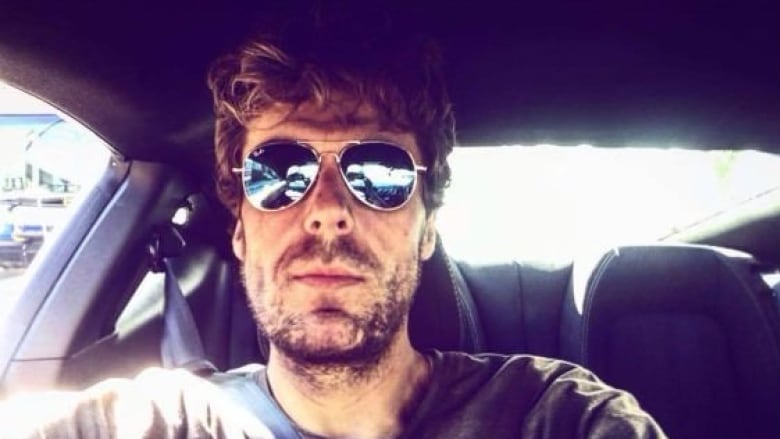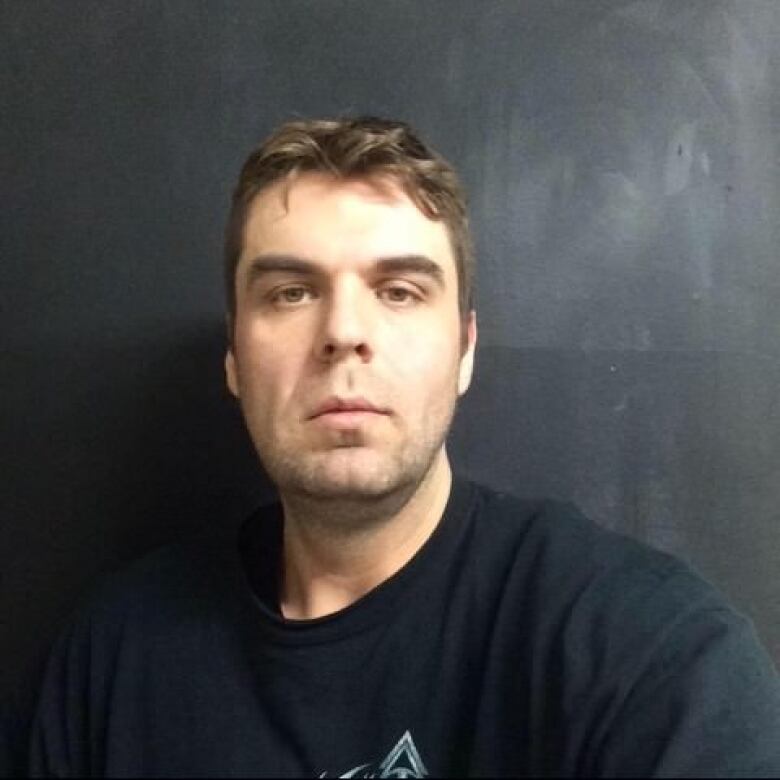Mother of Wet'suwet'en man killed by Campbell River RCMP seeks answers and an inquest
Mounties say Jared Lowndes fled officers and fatally stabbed a police dog

WARNING: This story contains details some readers may find distressing.
The mother of a Wet'suwet'en man killed by police in Campbell River, B.C., last week is speaking out about her son's death and calling for a public inquest intothe latest in a series of Indigenous people dying through police actions.
The province's Independent Investigations Office is still investigating what happened before RCMP officers shot Jared Lowndes, 38, outside a Tim Hortons in the Vancouver Island community last Thursday.
Laura Holland, his mother, remembers her other son phoning her Thursday with the news.
"He told me that I needed to come home immediately, and he said, 'It's Jared,'" she recalled. "And I said, 'No, what happened? Tell me, tell me now.' He told me that the RCMP had killed him.
"It really hit me: they killed my son."
After seeing news stories about Lowndes' death in which RCMPhave said he fled from police in his car and fatally stabbed a police service dog Holland wants people to know he should not be defined "by the last 45 seconds of his life."
In an interview, she told CBC News her son was a dedicated fatherof two daughters, aged sixand 13.
She and Lowndes are members of the Wet'suwet'enNation's Laksilyu (Small Frog) Clan. She said he had lived for at least six years in Campbell River, where he was involved with the local Indigenous community and elders.
"Jared was very clear about who he is as an Indigenous man," Holland said. "My son was loving, caringand as positive of an influence as he could be on his community members."
According to an RCMP press release, officers stopped Lowndes around 9 a.m. Thursday on an outstanding warrant, but he fled until his car was rammed by multiple police cars.
"During the interaction a police service dog was stabbed and killed, and the suspect was shot," police stated, noting an officer also was treated for a knife wound.
RCMP expressed "great sadness" about the death of their dog, sayingan attack on a service dog is treated similarly to violence againstan officer.
'There did not seem to be any de-escalation'
Holland and Lowndes' friends allege the warrant was purely "administrative," though CBC News could not confirm the nature of the warrant.
According to court records, Lowndes had a speeding ticket in May, and 17 years ago was convicted of possession of stolen property over $5,000.
"He was not his past," Holland said."Jared became a better man."
She added that he had been involved in the foster care and youth criminal justice systems. Shesaid he had learned to fear police because of his and other Indigenous people's experiences, and cited cases reported in the news and in her community of severe, long-term injuries caused by police service dogs.
"I can't begin to imagine how terrifying the last 45 seconds of his life were," Holland said. "There did not seem to be any de-escalation in those 45 seconds."
'He wanted to see accountability'
CBC News also spoke to Lowndes' friend of nearly 25 years, Randy Geddes. He said it's "totally wrong" to assume police were justified in killing his friend, even if he fled from officers.
"When you're afraid, there's no way to know what's going to go through your head," said Geddes, who is Blackfoot and Swampy Cree.
"It's been such deep dehumanization that I've seen online, to take away any chance to see him as a person. "

In a note Lowndes wrote roughly a week before his death, which Holland provided to CBC News, he recounted his childhood in foster care and youth corrections.
"The police, doctors, social workers should have kept me safe," Lowndes wrote in the letter. "I've done everything in my power to make sure my children don't have to suffer or experience anything like I did.
"The RCMP are still subjugating First Nations people. They must be disbanded and replaced with a new police force that's trained correctly and held to a higher standard of law."
Indigenous leaders have long madecalls for more police oversight and accountability, especially after a string of Indigenous people died at the hands of police in recent years.
Lake Babine Nation member Everett Patrick died in Prince George RCMP custody last yearafter being hospitalized for police dog wounds during an arrest.
In 2017, Gitxsan and Wet'suwet'en man Dale Culver died in custody at the same detachment.
Police have killed two members of Tla-o-qui-aht Nation in the past year Julian Jones, killed near Tofino, and Chantelle Moore, shot by police in New Brunswickduring a "wellness check."
'Killing a person should not be the default response'
TheB.C. Civil Liberties Association has demanded changes for years, filing numerous reports and lawsuits. The organization has offered its support to Lowndes' family.
"Killing a person should not be the default response when the police have multiple resources at their disposal," said Veronica Martisius, staff counsel with the organization.
"BCCLA stands with Jared's family in calling for an unbiased investigation into the RCMP's use of lethal force."
Martisius told CBC News the most recent incident is just the latest in a pattern, and she believes laws governing police misconduct must be strengthened.
"The police in Canada are killing Indigenous peoples at an alarming rate," she said. "These killings are a manifestation of settler-colonial violence, which continues to evade accountability."
Holland is waiting anxiously, hoping for theIndependent Investigations Office to reveal the truth. But she said she "absolutely" wants an inquest into why her son died a public venue where experts canraise some of the systemic issues he spent his adulthood calling out.
"He was very clear about what happened to our people, and how he wanted our land back," Holland said. "He talked about the foster care system, and the violence and abuse that children survive; he talked about the jail system and youth detention.
"There are so many things that need to be talked about, things that Jared brought up that we need to talk about, so many things that have to happen. Maybe not in his life, but in our life."












_(720p).jpg)


 OFFICIAL HD MUSIC VIDEO.jpg)
.jpg)



























































































